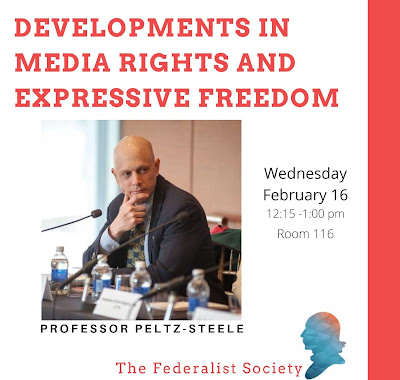Last week, in
West Virginia v. Environmental Protection Agency, the U.S. Supreme Court dealt a major blow to federal regulators on the climate change front, and the case has stalled, again, release of the trial court decision over the right-to-repair law in Massachusetts.
First, a word on West Virginia, in which the Court struck down climate change-combative regulations for being born of a breadth not sufficiently specifically authorized by Congress. Others will comment more ably than I on the constitutional law of it all, but from where I sit, the case was correctly decided. Before you throw your rotten tomatoes at me for composting, at least absorb my two cents on the matter:
We have too long been under the rule of administrative fiat in the United States, rather than democratic lawmaking, because our dysfunctional Congress long ago abdicated its role as a co-equal branch of government. Early in the 20th century, the Court unwisely allowed the non-delegation doctrine to slip away, and with it went the checks and balances of the constitutional separation of powers itself. So we're overdue for a correction.
You don't want to hear it from me, but the same problem pertains in the Roe/Dobbs debacle, where the administrative fiats on privacy have been coming from the Court rather than the administrative state, but certainly not from Congress: same difference. People, especially people ill schooled in the separation of powers—wherefore the sorry state of K12?—look to monolithic government for answers to their problems. They don't much care which public office provides the answer. So they fail to distinguish a Supreme Court decision—West Virginia or Dobbs—that says not our job from one that says simply not. Protestors picketing the Supreme Court building in recent weeks were on the wrong side of the street.
Abdication is a win-win for lawmakers, who can rake in the dough from corporations for the small price of doing nothing while blaming other branches of government for failing to offer a fix. Lawmakers sat on their hands on privacy and women's rights for decades in the wake of Griswold and Roe, content to let the Court struggle to map fine lines. Now they pantomime outrage and aspersion when Roe goes away and there is no statutory civil rights framework to replace it, nor even a framework to protect interstate travel rights, which is well within congressional authority.
Anyway, the angle on West Virginia that interests me is that on July 1, the U.S. District Judge Douglas P. Woodlock again delayed his decision in automakers' challenge to the Massachusetts right-to-repair initiative, saying that he would have to study the impact, if any, of West Virginia on his rationale. (E.g., Repair Driven News.)
Issuance of the decision in the case has been delayed time and again this calendar year, and the case has spurred occasional fireworks. Chris Villani for Law 360 wrote in February how "[a]n exasperated federal judge said ... he was close to a verdict in a suit challenging Massachusetts' revised 'right to repair' law, yet he pressed attorneys for a group of manufacturers about why they didn't tell him that new Subaru and Kia vehicles complied with rules they claimed are impossible to follow."
It was not clear, later, whether Subaru and Kia had actually complied, or just turned off the offending telematic features in new cars to be sold in Massachusetts. Turning off an otherwise functional mechanism does not, Massachusetts AG Maura Healey opined, and I agree, comply with the consumer data access law.
Though the omission that aggravated the judge was explainable, the incident is demonstrative nonetheless of automakers' obfuscating foot-dragging in their conduct of the case overall. They threw every kitchen-sink theory and procedural roadblock at the Massachusetts law, because every day of noncompliance is money in the bank, never mind the merits, nor the defense cost to taxpayers.
Automakers' problem is less with telematics regulation and more with being regulated state by state, rather than by federal standards. Federal regulation, rather than state regulation, has two powerful advantages for industry. First, federal regulations are universal, rather than 50+ in number, which vastly reduces compliance costs. More efficiency in compliance costs is good for consumers, too. So that's fair.
Second, federal regulations come from a grinding rule-making process that is almost irretrievably contaminated by the mostly lawful if deeply lamentable corruption of the industry-state complex. So manufacturers can lobby their way free of meaningful burdens that would benefit consumers and protect social and economic rights. Less fair.
It is not clear why Judge Woodlock thinks that West Virginia might affect his ruling. I might be able to say if I followed the Massachusetts case more closely. Absent a study, my guess is that the issue has to do with preemption. One of the automakers' kitchen-sink challenges alleged that Massachusetts could not regulate telematics because federal regulation of the auto industry impliedly preempts state right-to-repair regulation. If the judge thought that the vitality of that theory depended on the breadth of the federal regulations, and the permissible breadth of federal regulations, when ambiguous, is necessarily narrowed by West Virginia, then maybe it's less likely that the federal regulations can be said impliedly to preclude state regulation.
I'm now piling supposition upon supposition, but if I'm right, the likelihood is that the trial court was going to rule in favor of industry, and it's possible but unlikely that West Virginia would change that. I put money on industry on this one back in the winter, too, in part because I supposed that the judge's exasperation was evoked by a seeming deception on the part of the soon-to-be-announced prevailing side, and in part because I'm a pessimist. Or, I like to think, a realist.
My will for public policy, though, if not my bet, is on the side of AG Healey. Previously, I've written favorably about right to repair as a bulwark of consumer protection, and I support the Massachusetts initiative.
The Massachusetts case is Alliance for Automotive Innovation v. Healey (D. Mass. filed Nov. 20, 2020).





.jpg)







